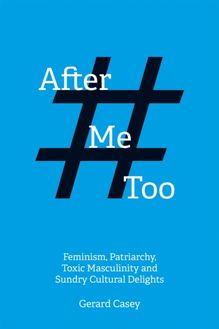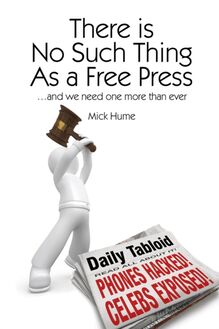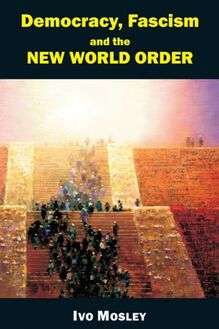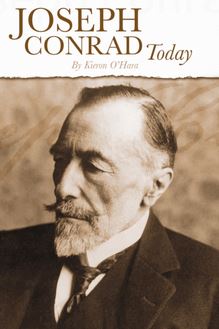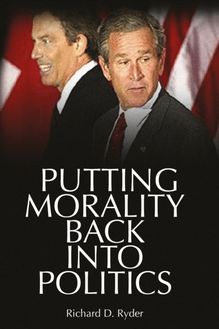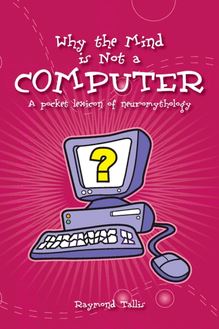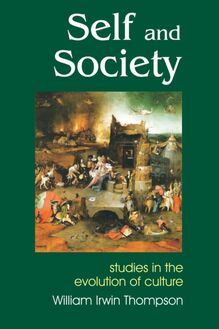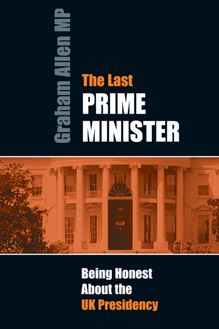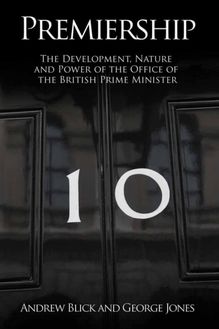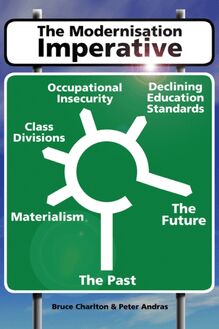-
 Univers
Univers
-
 Ebooks
Ebooks
-
 Livres audio
Livres audio
-
 Presse
Presse
-
 Podcasts
Podcasts
-
 BD
BD
-
 Documents
Documents
-
- Cours
- Révisions
- Ressources pédagogiques
- Sciences de l’éducation
- Manuels scolaires
- Langues
- Travaux de classe
- Annales de BEP
- Etudes supérieures
- Maternelle et primaire
- Fiches de lecture
- Orientation scolaire
- Méthodologie
- Corrigés de devoir
- Annales d’examens et concours
- Annales du bac
- Annales du brevet
- Rapports de stage
La lecture à portée de main
Vous pourrez modifier la taille du texte de cet ouvrage
Découvre YouScribe en t'inscrivant gratuitement
Je m'inscrisDécouvre YouScribe en t'inscrivant gratuitement
Je m'inscrisEn savoir plus
Vous pourrez modifier la taille du texte de cet ouvrage
En savoir plus

Description
Sujets
Informations
| Publié par | Andrews UK |
| Date de parution | 14 février 2017 |
| Nombre de lectures | 0 |
| EAN13 | 9781845406080 |
| Langue | English |
Informations légales : prix de location à la page 0,0324€. Cette information est donnée uniquement à titre indicatif conformément à la législation en vigueur.
Extrait
The Last Prime Minister
Being Honest About the UK Presidency
Graham Allen MP
IMPRINT ACADEMIC
2017 digital version converted and published by
Andrews UK Limited
www.andrewsuk.com
Copyright © Graham Allen, 2003, 2017
The moral rights of the authors have been asserted
No part of any contribution may be reproduced in any form without permission, except for the quotation of brief passages in criticism and discussion.
Imprint Academic
PO Box 200, Thorverton EX5 5YX, UK
To Allyson and Grace who daily teach me about leadership
Foreword
“The Prime Minister’s role as head of Her Majesty’s Government, her principal adviser and as Chairman of the Cabinet are not defined in legislation. These roles, including the exercise of power under the Royal Prerogative, have evolved over many years, drawing on convention and usage, and it is not possible precisely to define them. The Government has no plans to introduce legislation in this area.”
Tony Blair
15 October 2001
Parliamentary answer to the author
Acknowledgements
I would like to place on record my thanks to those who inspired this essay. John Smith, Labour Party leader 1992–4 who showed that leadership of the Labour Party must combine the visionary with the practical. Tony Blair, for leading my party to the first Labour government for 18 years and then giving me the opportunity to serve in it. He generously scheduled two interviews neither of which could take place in the immediate aftermath of the terrible events of September 11, 2001. My wife Allyson and Professor Michael Genovese who encouraged me to put these thoughts into words. Richard Heller who proofed the draft. The House of Commons Library staff who answered lots of questions . Shirley Stephenson who turned scrawl and scribble into a lovely typescript. Professor Peter Hennessy, Professor Anthony King, Edward Pearce, Wilf Stevenson and many serving ministers and officials of No 10 who would rather not be named, for their advice and conversation over the years.
Preface to Second Edition
The member for Nottingham North rose to his feet, the House of Commons, packed as usual for Prime Ministers Questions, fell silent. “Would the Prime Minister tell this House of Commons by what right, what authority does he - unelected as his office is, by Parliament or the people - believe he can take our country to war and much else, without the formal involvement of Parliament or the people? How can he lecture others about the rule of law when his own legitimacy is so tenuous?” The PM reddened and spluttered replying “Golly y’know I’ve never even thought about it like that, but you are right. I’ll get straight on it and sort out this constitutional nonsense so all of us, the electorate included, can understand our political system and the position of my Office in it”.
In your dreams Graham!
But there is, as always, a serious point, for as I wrote these lines, thousands of British soldiers were being sent overseas to prepare for a conflict and to execute the international policy of our government and its major ally. The decision to send them, and the policy which prompted it, were made and chosen by the Prime Minister: he did not require, nor did he seek, the approval of Parliament. The process of “target drift” by the American administration, by which Iraq rather than Al-Qu’aida became the prime enemy, was accepted by the Prime Minister without reference to Parliament, and possibly without formal reference to the cabinet. The actual use of our forces in combat, our military and international strategy during and after the conflict, the terms of any ceasefire or lasting settlement: these too are decisions for the Prime Minister, and he can take them without needing to consult Parliament or even meeting it.
To all intents and purposes, a Prime Minister has the same power over our forces as Henry V, although without the same obligation to lead them in person. Nearly six centuries after Agincourt, Parliament still has no formal or agreed role in the decision to go to war or the conduct and purpose of a war. Parliament does not even have access to the legal advice which would enable it to determine whether a war, or a particular military operation, would be lawful.
The role - or non-role - of Parliament in a conflict against Iraq is the most dramatic demonstration of my primary thesis in the first edition of The Last Prime Minister , just over a year ago. The UK Prime Ministership is in effect an unelected, unacknowledged Presidency, and because it is unacknowledged it has none of the checks and balances which normally go with a Presidency. The contrast between the British Parliament and the US Congress over Iraq could not be starker: one a creature of the executive and a spectator of policy and decision-making, the other with powers, duties, advice and a mandate independent of the executive, and an active partner in the conduct of policy.
Yet, at the very moment when the country can see how little its elected MPs can influence the most crucial decision to be made by its government, the Prime Minister resists the inclusion of any elected members of a reformed upper house - for fear that it would challenge “the supremacy of the House of Commons”. Ministers manage to use this phrase without a smile on their faces, but in doing so they confirmed my secondary thesis in The Last Prime Minister - the British people will never come to grips with the realities of Prime Ministerial power until they and MPs in Parliament strip away the comforting myths which surround the unwritten British constitution. The supremacy of the House of Commons... parliamentary sovereignty ... democratic accountability are myths of this kind, and so long as people believe them, they allow the executive to maintain its apparatus of power without anyone noticing.
The past year therefore confirmed my theses about the true nature of Prime Ministerial power and the role of constitutional myths in sustaining it. However, it did not vindicate my optimism that it would be recognized and reformed. I had hoped that as the costs of excessive Prime Ministerial power became more apparent - not least to the present incumbent - there would be more willingness to share its burdens with other democratic institutions, both national and local. I had hoped that Tony Blair would confirm his place in history by becoming the first Prime Minister to describe accurately the nature of his office and to relax its monopoly powers both to initiate policy and to manage public services even to the micro level.
So far I have been wrong. The UK Presidency remains unchecked, and it has shown no willingness to seek partnership with the legislature, or the wider nation, even when such a partnership would clearly assist its objectives. Over Iraq, the Prime Minister could have reinforced his influence over American policy if he had sought the support of Parliament. He chose not to do so, and his efforts to persuade the US administration to use the United Nations and to build a coalition against Iraq relied only on a punishing programme of personal diplomacy. Similarly , the Prime Minister’s drive to reform the policies and institutions of the EU would have benefited from an active partnership with Parliament and indeed with British public opinion in general. Instead, it relied on the traditional methods of personal deal-making behind closed doors. On these issues, and many others, not least terrorism, the UK legislature shares the fundamental objectives of the UK Presidency and wants to help achieve them: its continued impotence and irrelevance are a loss to good government and public involvement.
Nevertheless, democratic reformers must cling to the hope of breakthrough and to faith in the triumph of a just cause, regardless of the objective situation. The past year has brought signs that the UK Presidency is becoming a little more flexible, and the UK legislature a little less supine.
For example, the current Prime Minister has generously agreed to appear before Parliament’s Liaison Committee (the chairs of all Commons committees) twice a year, although the reader will have to judge whether the chairs can make this more than an extension to the Presidential press conferences, announced at the same time. [1]
At a more mundane level, the executive has allowed Parliament to give itself a more sensible calendar and hours of work, to make select committees more effective, and to conduct pre- legislative scrutiny of bills. However, the daily and long-term parliamentary agenda and the appointment of select committee chairs remain in the control of the Prime Minister. Although two popular MPs were saved against the government’s wishes by a surprise backbench rebellion, it is still generally true to say that committee chairs hold their office on sufferance from the government . Nor have they been given the salary, status and independent career structure recommended by the Modernization Committee.
Pre-legislative scrutiny likewise depends on the goodwill of the executive, and few departmental ministers have so far been willing to take the extra time to publish bills in draft. For example the government’s flagship Criminal Justice Bill for session 2002–03 has 273 densely-packed clauses and 26 schedules with major implications for the public’s experience of crime and the criminal justice system. It was an ideal candidate for extended pre-legislative scrutiny: it did not receive it, and it will therefore not benefit from the detailed comments of either professional experts or the victims of crime which it is meant to serve. Such scrutiny on-line will one day allow all electors to improve the laws which govern them.
Although these weaknesses remain, the year h
-
 Univers
Univers
-
 Ebooks
Ebooks
-
 Livres audio
Livres audio
-
 Presse
Presse
-
 Podcasts
Podcasts
-
 BD
BD
-
 Documents
Documents
-
Jeunesse
-
Littérature
-
Ressources professionnelles
-
Santé et bien-être
-
Savoirs
-
Education
-
Loisirs et hobbies
-
Art, musique et cinéma
-
Actualité et débat de société
-
Jeunesse
-
Littérature
-
Ressources professionnelles
-
Santé et bien-être
-
Savoirs
-
Education
-
Loisirs et hobbies
-
Art, musique et cinéma
-
Actualité et débat de société
-
Actualités
-
Lifestyle
-
Presse jeunesse
-
Presse professionnelle
-
Pratique
-
Presse sportive
-
Presse internationale
-
Culture & Médias
-
Action et Aventures
-
Science-fiction et Fantasy
-
Société
-
Jeunesse
-
Littérature
-
Ressources professionnelles
-
Santé et bien-être
-
Savoirs
-
Education
-
Loisirs et hobbies
-
Art, musique et cinéma
-
Actualité et débat de société
- Cours
- Révisions
- Ressources pédagogiques
- Sciences de l’éducation
- Manuels scolaires
- Langues
- Travaux de classe
- Annales de BEP
- Etudes supérieures
- Maternelle et primaire
- Fiches de lecture
- Orientation scolaire
- Méthodologie
- Corrigés de devoir
- Annales d’examens et concours
- Annales du bac
- Annales du brevet
- Rapports de stage
